DIGITIZATION AND INDUSTRY 4.0
It is a process of transformation of the way a company works, based on the implementation of tools and technologies that make workflows more efficient.
In our collective imagination, the opposite of “digital” is “analogic”: it is therefore normal that the first thing that comes to mind is that in this process the paper is eliminated by switching to digital archiving of documents.
There is much more, though: this process does not only concern documents, it includes the entire business system. It is a real technological evolution that focuses on the use of optimized systems which are the protagonists of this process. Indeed, the digitization of business processes covers all areas and levels of a company: from offices, to laboratories, to production and finally to logistics.
It is no coincidence that with the advent of business automation we now talk about the fourth industrial revolution, which is precisely the historical context we are living in. It only took a few centuries, starting with mechanization (i.e. production using steam machines instead of by hand), then moving on to the use of electricity and assembly lines, followed by the introduction of computers. Now, the internet and metadata are entering companies.
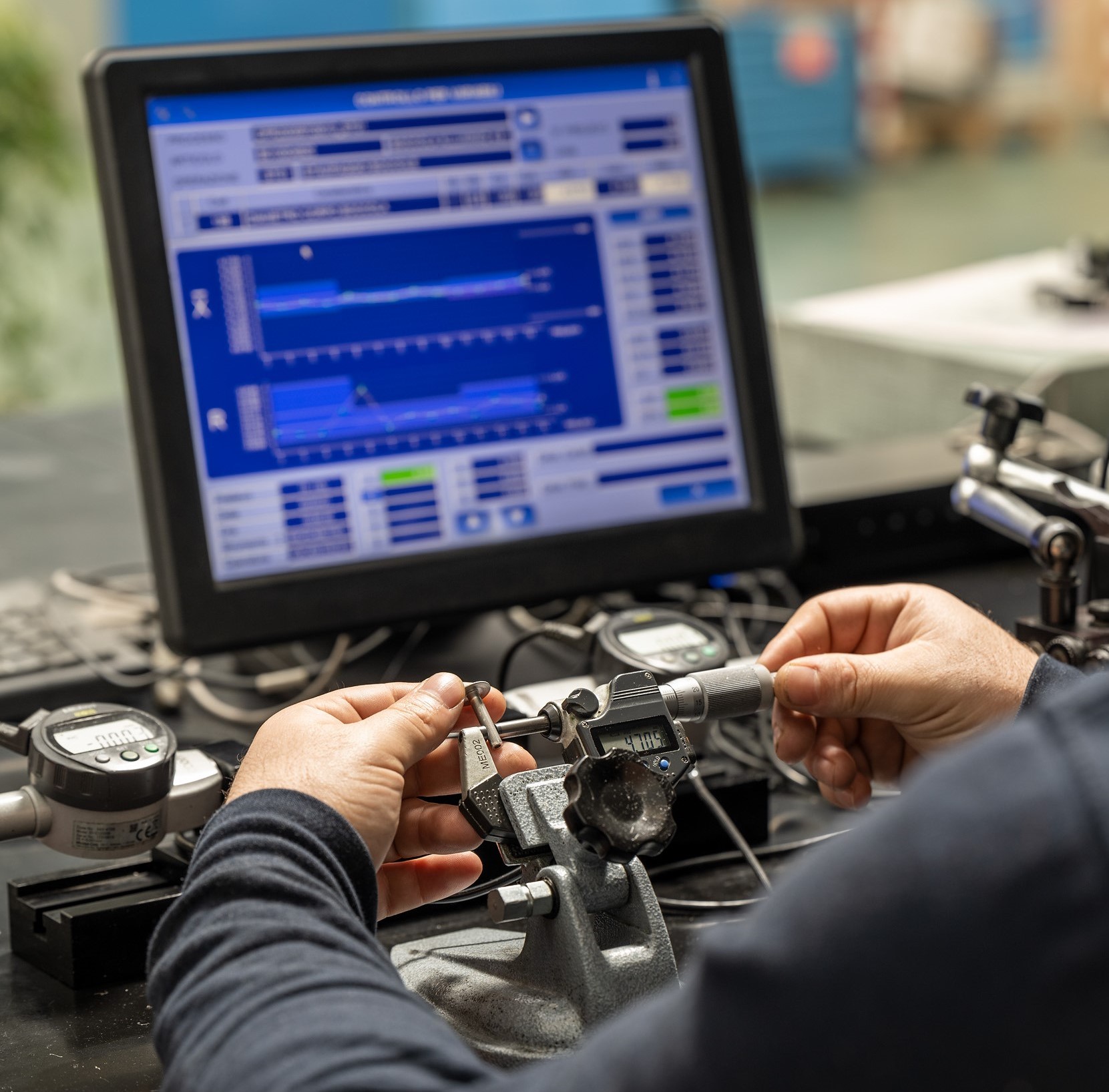
The term Industry 4.0 was introduced in 2011 at the German Industry Fair in Hanover. It is a highly complex concept, that can be a bit nebulous.
The complexity of the term derives from its nature: in fact, the fourth industrial revolution is taking place right now, and it is for this reason that it is still difficult to find an exhaustive definition.
Despite the complexity of the phenomenon, let’s try to understand together what is meant by Industry 4.0.
We can say this is a process that aims to achieve a fully automated and interconnected industrial production, creating goods in a more efficient and productive way through the value chain.
In concrete terms, what is applied is digitization, that becomes the basis of the now called smart factory, through which the firm combines the dictates of automation.
But what are the advantages of applying the Industry 4.0 philosophy?
Among the most relevant:
- process interconnection
- constant and precise monitoring
- more data available in real time to both producer and customer
Therefore, we can affirm that corporate digitization allows to obtain higher quality and flexibility in production. And these enable the creation of totally customized systems, and the possibility of offering a wider and more specific offer developed on the customer’s needs.
DIGITIZATION IN THE INDUSTRY OF BLIND RIVETS
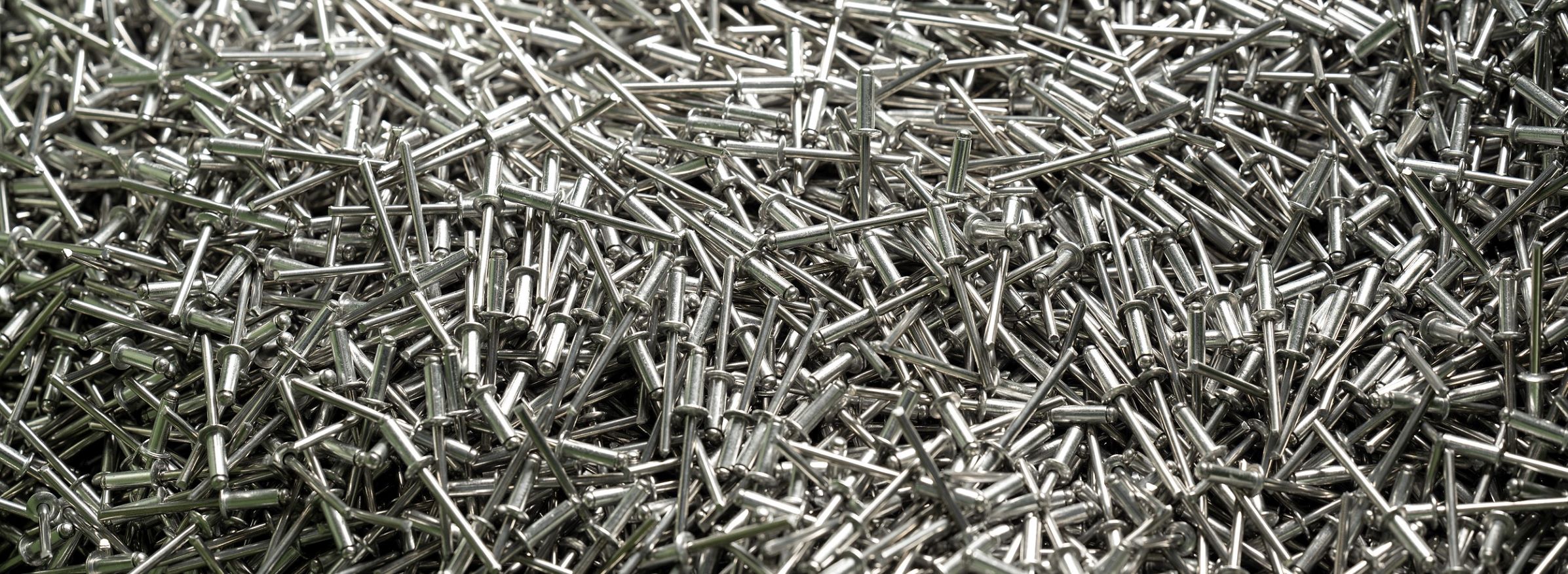
The blind rivet, like all small metal parts, is in itself a poor item.
Specifically, it falls within the so-called C-class components, i.e. all the components that are part of the production process of an article, but only marginally affect its final cost. It is therefore a very high quantity of products, with a limited unit cost.
At this point, a legitimate question may arise: how can we add more value to a poor product?
Within an organized and complex structure like a company, a digitization system applied to the production reality represents an effective method for generating value for the products.
An automated company, in which all steps are digitized, has infinite production data available.
The presence of a vast amount of data, working within an optimized and digitized process, allows to generate what is defined as a smart factory: a company where all production systems are optimized, making processes more flexible and efficient, allowing the customer to obtain several important advantages:
- first of all traceability, which allows the identification of product components and the mapping of the processes performed (including tests). This is a strong point, especially in the Automotive sector
- real-time information on the status of processes and product availability
- product engineering and customization
- production costs containment
- reduction of consumption
Besides adding value to the company, digitization can be an important form of sustainable development, if combined correctly.
Environmental protection is a more and more urgent issue, which cannot be limited only to the private sphere of the citizen, but is taken to heart also by the industrial one.
For this reason, in Industry 4.0 innovation and environment are considered and developed as key points within business processes.
If applied correctly, automation philosophy aimed at environmental protection can bring multiple benefits:
- electronic archiving of documents drastically reduces the unnecessary consumption of paper
- the use of renewable energy sources reduces consumption and emissions
- greater control of consumption favors the reduction of waste and CO2 emissions
- optimizing the shipment of goods helps reduces the pollution caused by means of transport.
INDUSTRY 4.0 IN SARIV
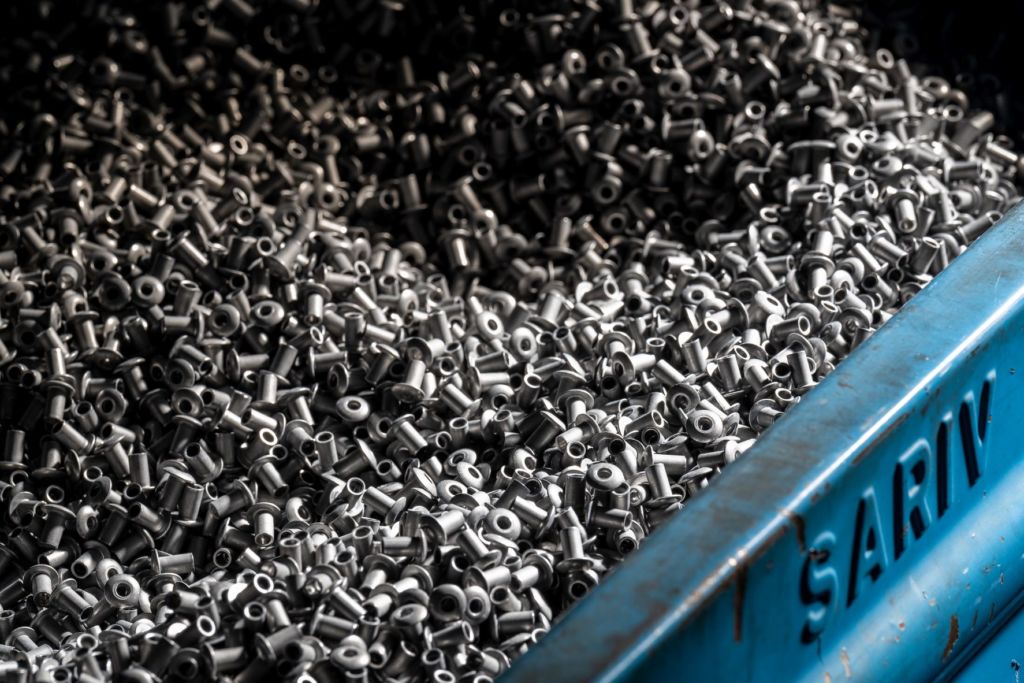
At the beginning – more than 30 years ago by now– Sariv simply was a manufacturer of standard blind rivets and blind rivet nuts for distributors. Within an increasingly competitive market, the breakthrough was possible when we understood we had to provide added value to our products and services. That value, in addition to the quality of our products, was found in the attention to our customer through the service linked to the product.
How can we make this concept come true?
Developing a new business model through the use of new cutting-edge technologies, with the aim to automate processes, create customized solutions and make the collected data flow accessible.
Specifically, the turning point started in 2012 was fundamental: we kicked off the digitization process that makes Sariv a case study of Industry 4.0.
In detail, what does automation mean in Sariv?
Some of you may have heard this aphorism from Galileo Galilei:
“Measure what is measurable, and make measurable what is not”.
Well, translate “measurable” with “traceable” and you will find the engine that powers innovation in our company.
A primary role in automation in Sariv is played by MES (Manufacturig Execution System), a digital architecture managing and monitoring the production of our blind rivets and blind rivet nuts, from the raw material up to the finished and packaged product.
MES, then, integrates the quality management into the process by communicating with ERP (Enterprise resource planning) and PLC (Programmable Logic Controller).
The three systems interact together in a complex broad-spectrum digital architecture that manages production process, quality controls of products and equipment, and data collection.
The information provided by this digital system allows us to trace all the details detected through the batch number of each item. This process is made possible because everything is set upstream and is then recorded in progress, that is:
- the raw material used
- the treatments carried out
- the tests and measurements performed
- the operator who carried out each step
- statistical process indices Cp, Cpk and OEE
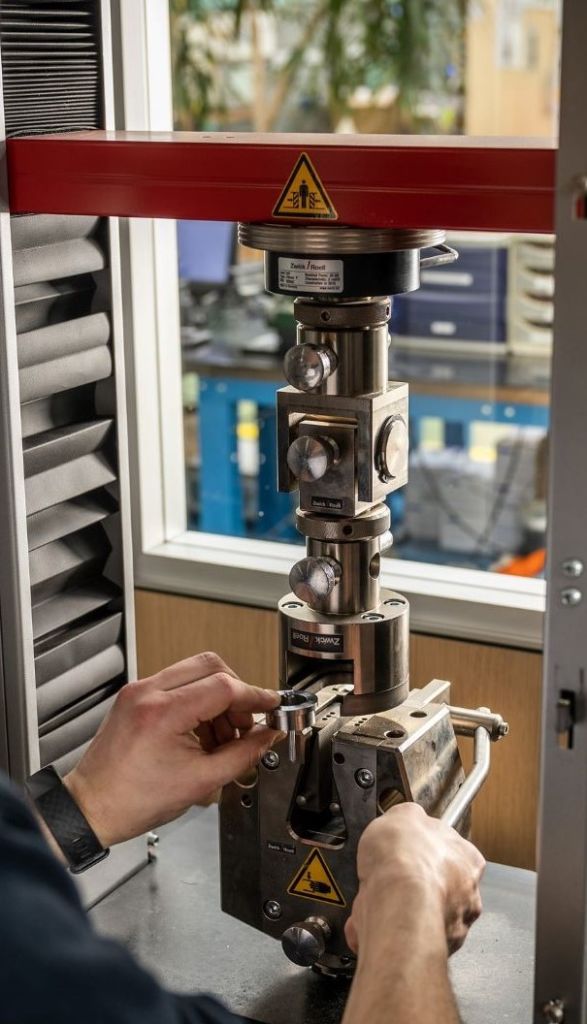
How does the automation process take shape and what tools make it possible?
- Through PDM (Product Data Management) the bills of materials are defined, i.e. lists of all the components, sub-assemblies, semi-finished products and raw materials necessary to make a product. In particular:
- What raw material to use: this is tracked from the moment of receipt by assigning specific barcodes.
- What equipment to use: the tools are marked with a QR code, to instantly trace the supplier and all the production processes in which they have been involved. In addition, a maximum life time is established for each component, which is automatically signaled by the system during use. This allows to replace the components before wear causes line stops.
- Which machines will be involved in each production step, with the subsequent possibility of accessing any information, even the operators who have performed the single steps.
- The production orders linked to each item include a Control Plan: the system automatically requires the operator to make periodic quality checks (such as dimensional tests, or mechanical shear and tensile tests), and the results of all tests performed are recorded and accessible at any time, even afterwards.
- A PLC (Programmable Logic Controller) installed on each machine stops it automatically in specific moments previously defined in the bill:
- When the system requires a scheduled quality control
- If the equipment in use has reached the end of its life
- If any anomaly is detected in the production phase.
- Each semi-finished and finished product is given a label with a barcode identifiyng the production lot, from which it is possible to trace all the information collected.
- The finished, packed and labeled goods are stored in our automated warehouse, which can store up to 5,000 pallets. For each code, we can instantly trace the stocks available for sale or those already committed by order (divided by type of packaging and semi-finished products).
It is an interconnected and dynamic digital structure, but what makes it unique and constitutes our strength as a company is that the quality system is integrated into the IT platform of the production progress control: this allows to store all data of the processes in a database, linking it directly to the batch number.
In this vision of communication and connectivity, traceability is the key word.
But, how can this add value to our products and towards our customers?
These are the advantages of digitization in the blind rivet sector:
- Since each step is tracked, we have real-time information on the progress of production and on the stocks of all the goods in our warehouse, from the raw material to the packaged product. This leads to detailed and immediate feedback to our customers.
- From our point of view as manufacturers, the range of information available allows us to constantly monitor our production. Moreover, it gives us hints and ideas with a view to an ever-increasing improvement in quality and processes. More control means quality assurance.
- Product and processing certificates can be provided for each batch: PPAP, VDA, 3.1, salt spray tests, etc.
- All the information in the previous points is essential for collaboration with the Automotive sector, as it is very selective due to obvious safety issues. For many years Sariv has been producing blind rivets and blind rivet nuts for the major brands in the Automotive industry, and since 2018 we have achieved IATF 16949:2016 Certification, international standard for Quality Management Systems in this industry. To date, Automotive has become our main outlet market.
- Finally, last but actually perhaps the most important point, industrial automation provides us with greater control, but also a flexibility and adaptability that we would not have had before. This means that we are able to break out of the patterns of pre-established products, and we can develop customized fastening solutions at will, designed ad hoc on the needs of our customers.
The development of digitization in Sariv and the search to combine the philosophy of Industry 4.0 have led to collaborations with various entities with a view to constant improvement, as in the case of The Polytechnic University of Milan.
It is also encouraging to see how some companies we collaborate with take inspiration from our digital architecture and understand its added value. It was an honor for us to be presented as a case study at the 2021 World Summit in Wurth, as best practice in the field of digitization and MES.
Besides, automation and digitization also mean sharing to us.
If this is the direction entrepreneurship is evolving towards, we feel obliged to spread the message and actively contribute. This is why a collaboration with Confindustria (the main association representing manufacturing and service companies in Italy) is underway in events that promote the evolution of corporate digitization: we host companies that want to see automation with their own eyes.
The latest project in which you can read about us is “Fabbriche Vetrina” (literally “Companies showcase”), an initiative for the diffusion of a new type of management, where we feature among the case studies.
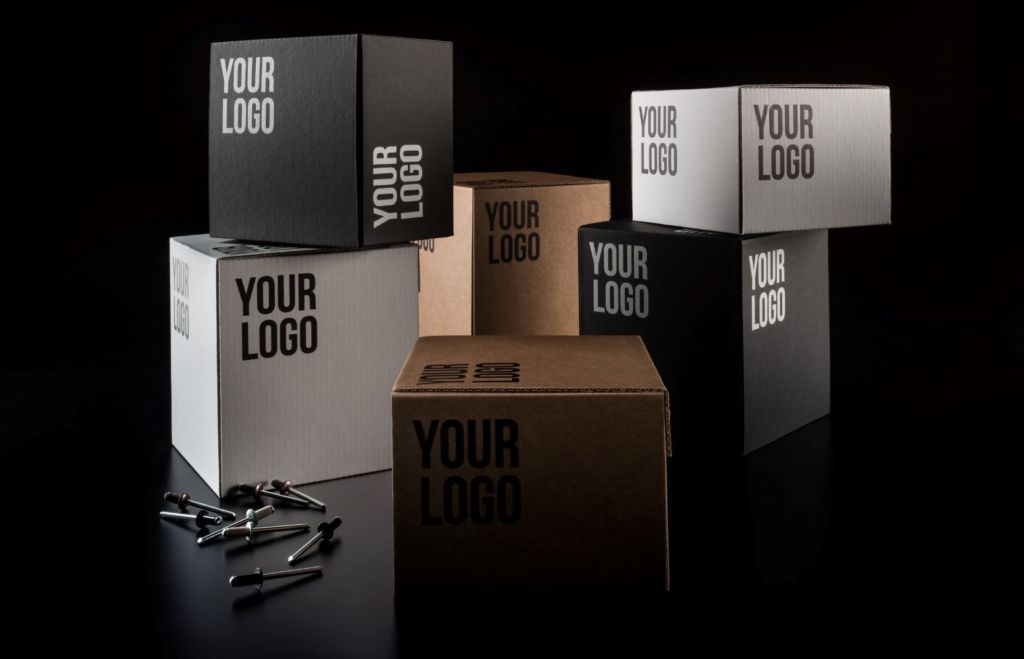
Sariv produces an average of 3,000,000 blind rivets and blind rivet nuts every day.
There are thousands of standard codes in our price list.
Yet most of the products we manufacture are out of catalogue.
How can that be possible?
This is the added value that comes from automation: we can develop the solution you need whenever it is needed.
There are so many types of blind rivets that it is not always easy to find the right article for the application. Besides, the solution may not always be that close at hand.
To meet these needs, in Sariv we have a dedicated Consultancy Office in which our technicians, through a detailed and in-depth analysis of the customer’s application, identify the most appropriate and suitable fastening system. Or, if it does not exist, it is entirely tailor-made.
Some examples of the development of customized fastening solutions can be found in our Case history.
Here are some of the customizations we can offer:
- Product design tailored to the application
- Ad hoc materials and surface coatings
- RAL upon sample and anodization
- Branded packaging and labels
- Camera sorting to guarantee PPM beyond the standards
- Tests and certificates (such as 3.1, VDA, PPAP, etc)
AUTOMATION LEADS TO FLEXIBILITY, AND FLEXIBILITY LEADS TO CUSTOMIZATION.







